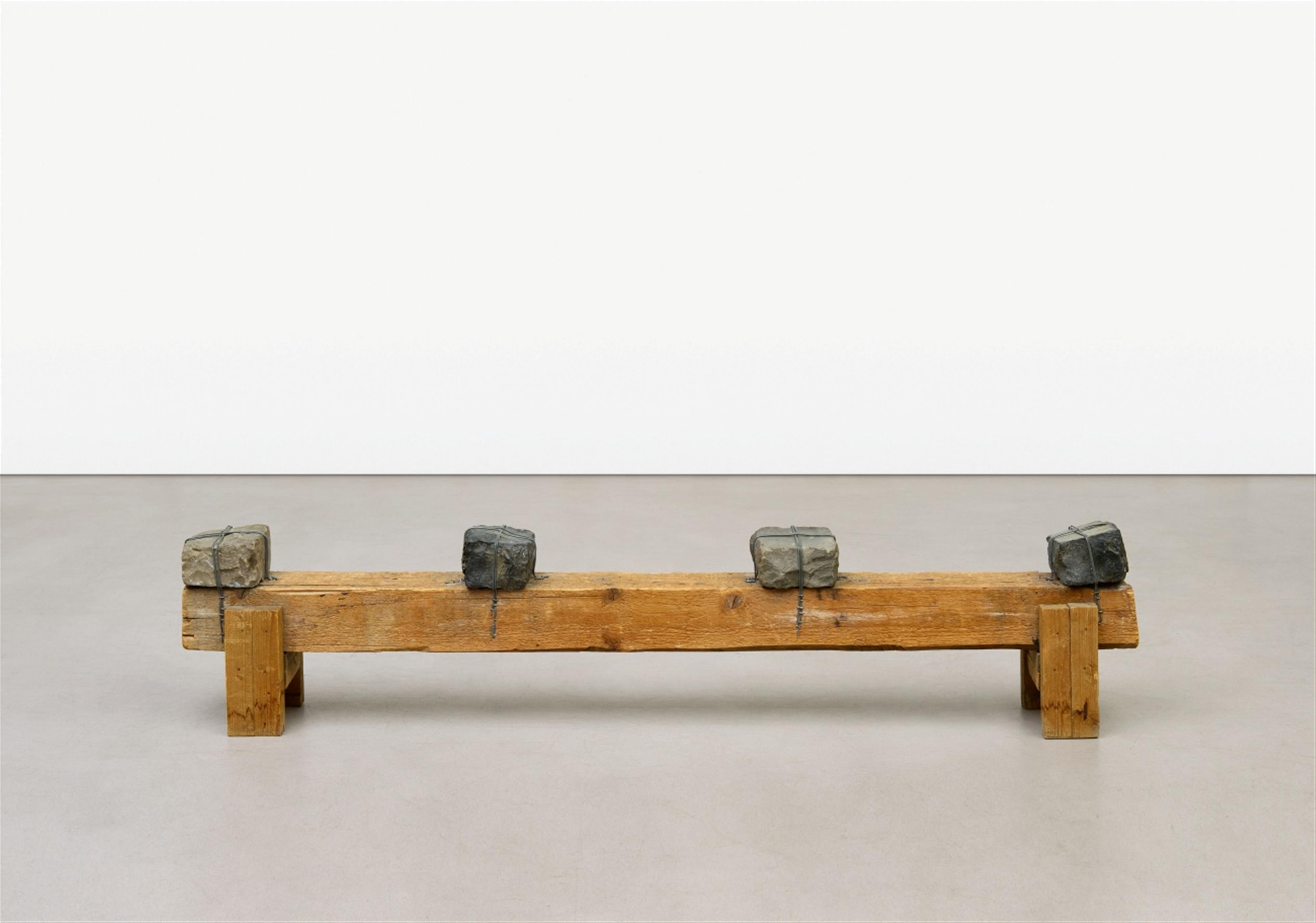C.O. Paeffgen
Untitled (Holzbank)
Paving stones, wire, and wood. Approx. 43 x 198 x 21 cm. - Traces of studio and minor traces of age.
C.O. Paeffgen was present in Berlin in the 1960s as the demonstrators chose the paving stone as a dangerous projectile, as the weapon of rough street arguments. Paeffgen gives the paving tone an aesthetic awareness and it becomes the star in his art world: The paving stone lies 'very nicely' in a black-coloured fruit crate (1969) or as a pair of stones on a jute cushion (1971); the paving stone is cast in iron (1972), and painted with pink acrylic colours (1972). Gallery Rudolf Zwirner eventually dedicated an exhibition to the artist in Cologne in 1990 entitled "die Ruhe der Steine" (the silence of stones): stones, paving stones lying in frames, hanging in mat, lying above and below, on the carpet, having a siesta, lying in the middle of a two-seater bench. And here a three-seater bench with four paving stones? The paving stone becomes part of the artist's everyday life; he cares for it, caresses it, and subjects it to constant mutation. Paeffgen uses simple, raw, untreated materials in his sculptural objects just like his contemporary representatives of the "Arte Povera" movement, as coined by the Italian art critic and curator Germano Celant in 1967, a movement championed by Giovanni Anselmo, Jannis Kounellis, Giuseppe Penone, amongst others in Italy, with their often provocative installations and sculptures using "poor", common and ordinary materials. Paeffgen wrapped the irregular surface of the usually cuboid natural stone, mostly granite, gneiss or basalt, and connected it as here with a bar, the carpentered supports of which serve to accentuate a peaceful effect; there is nothing aggressive or violent. The bench with the paving stones becomes suitable for everyday use.
Provenance
Private collection, North Germany

